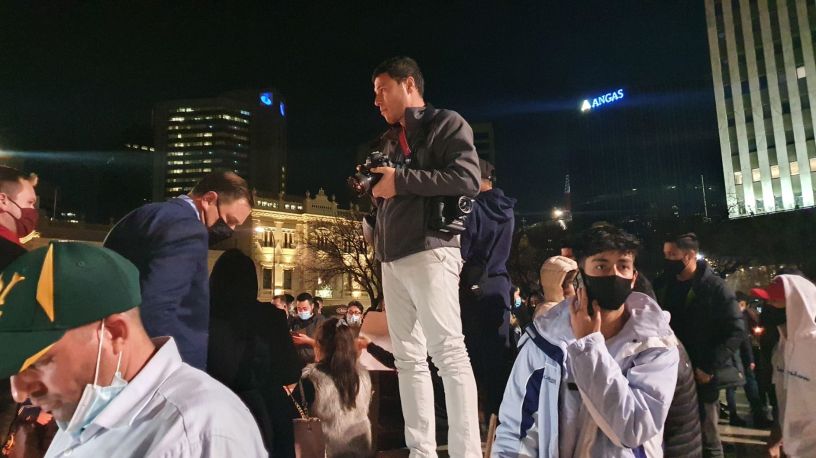The withdrawal of US troops from Afghanistan and the subsequent Taliban takeover has increased attention to the plight of the country’s refugees as they attempt to escape the rapidly changing environment.
For filmmaker Jolyon Hoff, the developments give a heightened relevance to his upcoming documentary Watandar/Countryman, which is inspired by the 160th anniversary of Afghan cameleers in South Australia.
A mix of photography and storytelling is used to reflect on the history of cameleer descendants, while also referencing global tensions between Islam and Christianity, and the undermining of the UN Geneva Convention.
Locations range from the remote deserts and old Ghantowns of SA to the Adelaide suburbs, as well as Marree, the site of the Australasian Camel Cup.
At the centre of the film is the journey of photographer and human rights activist Muzafar Ali, whom Hoff met in Indonesia eight years ago while Ali was still a refugee.
A Hazara artist from Afghanistan who grew up in Pakistan as a refugee, he returned to his home country in 2004 as a 17-year-old and got a job with the United Nations. After surviving a roadside bomb attack by the Taliban just a few days into his new job, he decided he wanted to share images of Afghanistan with the world.
Hoff told IF the project, which began two to three months ago with Ali capturing images of cameleer descendants, had since evolved to include a “direct and unfiltered” snapshot of the current situation.

“His idea with the cameleer descendants was that he still recognised them as his people because even though they’d been here for 160 years, their cultural practices, the way they look, and the things they did reminded him of Afghanistan,” he said.
“We were filming that when the Taliban took over and he switched over to reaching out to his former colleagues in Afghanistan and trying to get them visas and getting them on the planes that were coming out of Kabul a few weeks ago.
“He’s opened his house to them to really make that kind of connection.”
Ali and Hoff previously worked together on the 2017 documentary The Staging Post, which followed Ali and fellow Hazari refugee Khadim as they built a community and started the school while stuck in limbo in Indonesia.
Joining the pair on Watandar/Countryman are cinematographer Katrina Penning and associate producer Hamish Ludbrook.
Hoff said his working relationship with Ali was one of mutual discovery.
“The key to the film is I help him understand Australia and he helps me understand Afghanistan and where he comes from,” he said.
“The project is built on this friendship of more than eight years.”
The documentary is currently independently financed, with Hoff in discussions with screen agencies. It is slated for release towards the end of next year.


